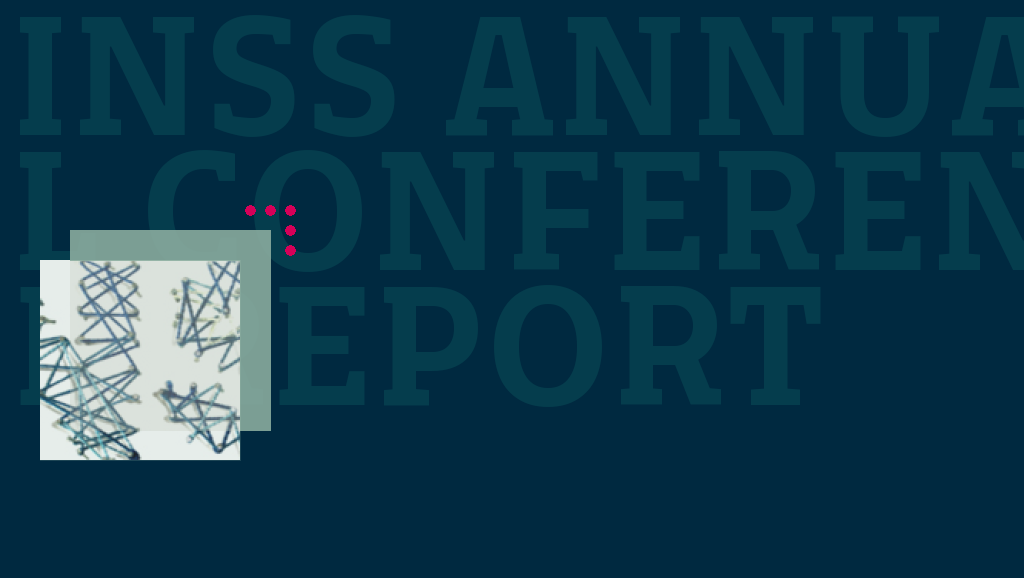The INSS Third Annual Conference took place this year between April 9th and 10th, with Bassetti Foundation Foreign Correspondent Jonathan Hankins attending the London site. This year’s conference was held over 5 sites, in an attempt to make the event as sustainable as possible by cutting down on travel for the participants.
Several seminars and the keynote speakers were followed simultaneously across the sites, thanks to the marvels of modern technology. The Conference was held at UNC Charlotte, North Carolina, Oregon State university, Arizona State University, Michigan State University and university College London.
Very much an experiment that could provide a model for similar events in the future, the practicalities of conducting a conference over several different time zones meant early starts for those on the US West Coast and late finishes for those in Europe. The technology worked incredibly well, with very few glitches over the days’ events. Participants were able to ask questions, follow seminars in any of the sites they chose, and interact with the poster and key note presenters using online media.
Hankins attended the London site, and was one of only 2 attendees to fly, a vast saving on resources for all concerned.
Objectives for this year’s meeting were very much geared towards carrying over ideas generated at the individual sites over the entire year, and building upon previous years’ experience. Work group representatives presented their work over the previous year (Hankins presented his experiences of promoting the Bassetti Foundation supported film competition, see here for further details), and discussions covered topics ranging from possible communication tool use, project development and collaborations between members across sites.
The Keynote Speaker was Prof. Adjo Amenkudzi, who presented a capital asset management theoretical framework and analytic model for conceptualizing and evaluating sustainable development. The presentation provoked interesting discussion accross the sites.
Each site shared some seminars and papers, but all had different agendas. The London agenda included a day of field trips, as well as a panel presentation during which presenters discussed their experiences of building the Engineering Exchange, a university lead action group whose aim is to bridge the gap between communities and planners preparing urban regeneration projects. Read the abstract here.
The field trips included a visit to Crossrail, a huge rail link and urban regeneration project based in london. A guided tour of the Elephant and castle area with the interest group “Social Life” followed, a context of urban regeneration that has caused many locals to question both existing and future plans in that area. The context was also helped by the involvement of a member of a local interest group that aims to support people whose houses are under threat, and promote the idea of refitting houses to maintain communities, rather than rehousing and rebuilding.
The closing panel was hosted in Charlotte and entitled Social Sustainability Initiatives in Planning and engineering Organization. Full details of all the participating site agendas can be found on the INSS website.
on behalf of all at the Bassetti Foundation we would like to congratulate all those involved in the organization of the conference, and all participants and presenters.
—————–
















